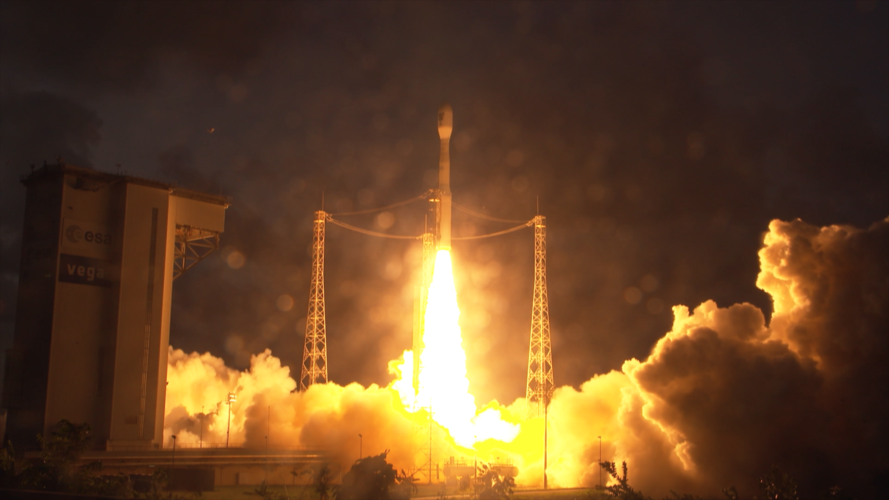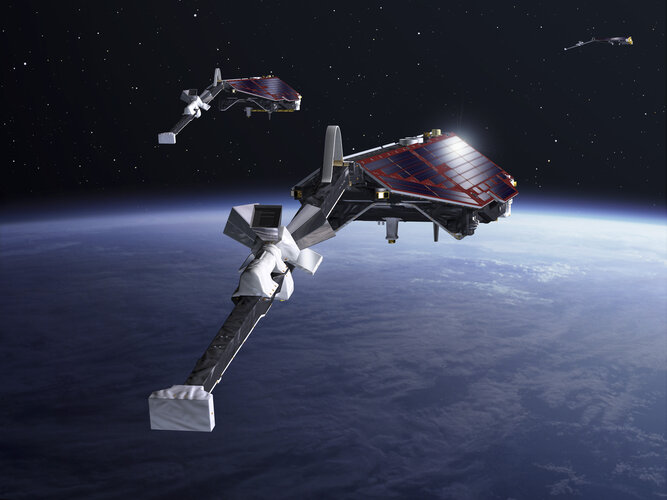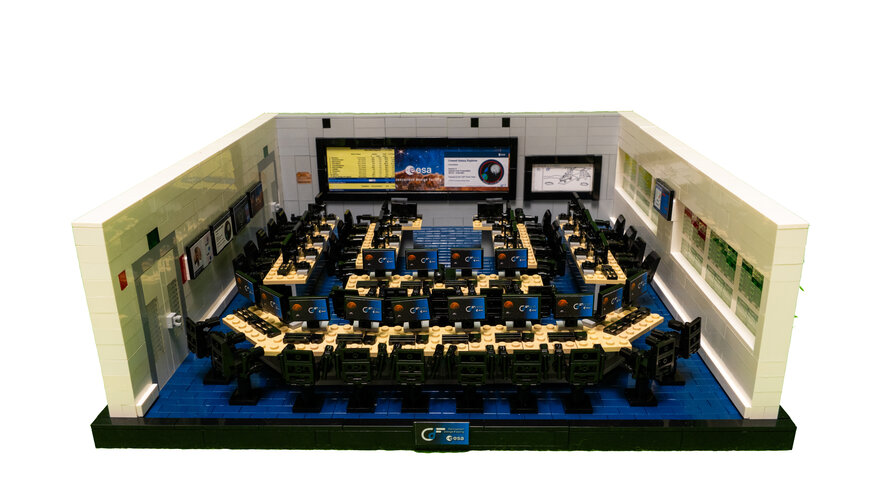Don Claussen, ST Engineering iDirect – Commercial Space Transformers
Tuesday, 10 December 2024 14:18

LeoLabs expands space-monitoring network with radar site in Arizona
Tuesday, 10 December 2024 13:15

Vega-C liftoff and return-to-flight
Tuesday, 10 December 2024 13:00 Video:
00:04:20
Video:
00:04:20
Relive the Vega-C launch, flight VV25, from various angles.
The third Copernicus Sentinel-1 satellite, Sentinel-1C, has launched aboard a Vega-C rocket, flight VV25, from Europe’s Spaceport in French Guiana. The rocket lifted off on 5 December 2024 at 22:20 CET (18:20 local time).
Sentinel-1C extends the legacy of its predecessors, delivering high-resolution radar imagery to monitor Earth’s changing environment, supporting a diverse range of applications and advance scientific research. Additionally, Sentinel-1C introduces new capabilities for detecting and monitoring maritime traffic.
The launch also marks Vega-C’s ‘return to flight’, a key step in restoring Europe’s independent access to space. Vega-C is the evolution of the Vega family of rockets and delivers increased performance,
Vaya Space Announces Multi-Launch Contract for Space Telecommunications, Inc.’s Satellite Constellation
Tuesday, 10 December 2024 13:00
Swarm vs. space radiation – the first 10 years
Tuesday, 10 December 2024 12:44
Satellites in orbit can become absentminded. Space radiation randomly flips onboard memory bits, potentially corrupting mission data and functionality. To better understand how this invisible onslaught works in practice, a team systematically analysed how radiation affected the memories of ESA’s three Swarm spacecraft during a decade of mapping Earth’s magnetic field.
Desert Works Propulsion Announces Operational Launch of DW-1, a Rocket Engine Test Facility
Tuesday, 10 December 2024 12:00
Space design chamber made in LEGO
Tuesday, 10 December 2024 11:22 Image:
Space design chamber made in LEGO
Image:
Space design chamber made in LEGO Blue Origin says first New Glenn launch still scheduled for 2024
Tuesday, 10 December 2024 11:18

Sentinel-1C captures first radar images
Tuesday, 10 December 2024 09:11
Less than a week after its launch, the Copernicus Sentinel-1C satellite has delivered its first radar images of Earth – offering a glimpse into its capabilities for environmental monitoring. These initial images feature regions of interest, including Svalbard in Norway, the Netherlands, and Brussels, Belgium.
XMM-Newton celebrates 25 years of breakthroughs
Tuesday, 10 December 2024 08:10
Today, ESA’s powerful X-ray observatory, XMM-Newton, celebrates 25 years in space. From planets to black holes, the space telescope has delivered many ground-breaking observations of a variety of celestial objects. And the mission is still going strong as recent results testify. We take a look at five fascinating discoveries from the last five years.
Plextek's cutting-edge mmWave technology for space operations and sensing
Tuesday, 10 December 2024 07:21 Plextek, a leading consultancy recognized for its expertise in low Size, Weight, and Power (SWaP) sensing technology, has published its latest innovation in the field of in-orbit space operations and sensing. In their technical paper titled "Sensing in Space" Plextek showcases groundbreaking mmWave radar technology, designed to improve the safety and reliability of future space and satellite missions.
Plextek, a leading consultancy recognized for its expertise in low Size, Weight, and Power (SWaP) sensing technology, has published its latest innovation in the field of in-orbit space operations and sensing. In their technical paper titled "Sensing in Space" Plextek showcases groundbreaking mmWave radar technology, designed to improve the safety and reliability of future space and satellite missions. A mission design to extend the life of space telescopes
Tuesday, 10 December 2024 07:21 The longevity of space telescopes is improving as researchers devise serviceable designs for future observatories. Inspired by current missions like the James Webb Space Telescope (JWST) and the European Space Agency's Gaia, a new servicing plan has been developed to ensure these powerful tools can operate for longer periods.
"Although the next generation of large space telescopes are bein
The longevity of space telescopes is improving as researchers devise serviceable designs for future observatories. Inspired by current missions like the James Webb Space Telescope (JWST) and the European Space Agency's Gaia, a new servicing plan has been developed to ensure these powerful tools can operate for longer periods.
"Although the next generation of large space telescopes are bein BepiColombo achieves milestone with mid-infrared observations of Mercury
Tuesday, 10 December 2024 07:21 On December 1, 2024, the European Space Agency's BepiColombo mission completed its fifth flyby of Mercury, marking a historic first by capturing the planet in mid-infrared light. The unprecedented images provide fresh insights into the temperature and mineral composition of Mercury's cratered surface.
Mercury, the least-explored terrestrial planet in the Solar System, has only been visited
On December 1, 2024, the European Space Agency's BepiColombo mission completed its fifth flyby of Mercury, marking a historic first by capturing the planet in mid-infrared light. The unprecedented images provide fresh insights into the temperature and mineral composition of Mercury's cratered surface.
Mercury, the least-explored terrestrial planet in the Solar System, has only been visited Robotics microbiology and agriculture dominate ISS research this month
Tuesday, 10 December 2024 07:21 The International Space Station (ISS) wrapped up the week with a focus on robotics, microbiology, and space agriculture as the Expedition 72 crew tackled an intensive schedule of scientific investigations and maintenance. Preparations for an upcoming spacewalk and continued work on the station's systems rounded out the crew's activities.
NASA astronaut and station commander Suni Williams c
The International Space Station (ISS) wrapped up the week with a focus on robotics, microbiology, and space agriculture as the Expedition 72 crew tackled an intensive schedule of scientific investigations and maintenance. Preparations for an upcoming spacewalk and continued work on the station's systems rounded out the crew's activities.
NASA astronaut and station commander Suni Williams c 

